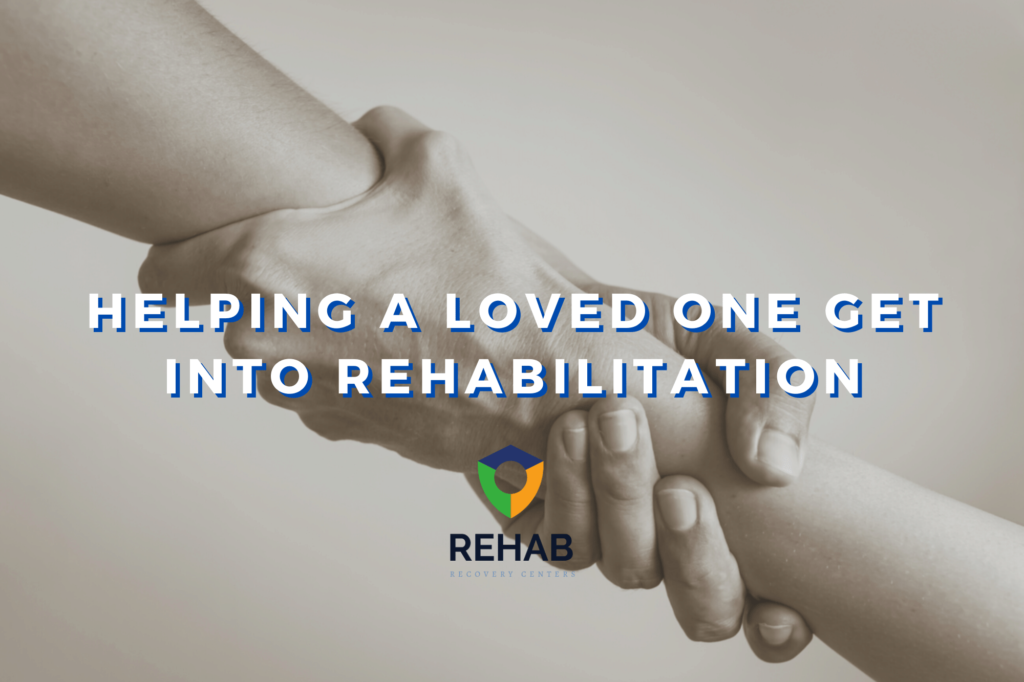Table of Contents
A recent report found that on average, one out of seven Americans will face addiction at some point in their life. That means that most of us will know at least one person who needs help down the road.
Helping a loved one get into rehab is a delicate process, especially if they have yet to come to that conclusion on their own. It is important to be aware of any negative feelings you or your loved one may have about the subject. That can include fear, guilt, or anger.
That being said, you can’t always wait for them to come to you. Sometimes, you will need to take the first steps towards getting your loved one the help they need.
Read on to learn more about how to talk to your loved one about addiction and how to get them into rehab.
Why Is Rehab Important?
Oftentimes, the path to recovery is not linear. In fact, about 85% of people who struggle with substance abuse will experience relapse within a year of their initial treatment.
While this can feel like a discouraging statistic, it’s important to remember that rehab is a life-saving tool. It also provides individuals with the tools and resources they need to continue to seek help over the course of their lifetime. Remember that addiction is a disease and, like any other disease, requires ongoing treatment.
Helping a Loved One Get Into Rehab
If you’ve discovered ample evidence that your loved one is struggling with addiction, it’s time to form a plan. If your loved one reaches out for your help, you can skip many of these early steps and head straight for finding the right rehab center and supporting the recovery process. However, it’s often not that simple, and you’ll want to read through each of the following steps before proceeding.
Educate Yourself and Avoid Finger-Pointing
As we mentioned earlier, addiction is a disease. Make sure that you understand how it affects the brain. Learn to see substance use as a symptom of the illness, rather than the illness, itself.
One of the reasons that you should educate yourself about addiction before proceeding is that it can help you cope with feelings of blame. Blaming yourself, your loved one, or other central figures in your loved one’s life will not help the process.
Make Sure You Have a Plan
Don’t dive in without knowing what you’re doing. Springing the idea of rehab on your loved one will feel like an attack and they will likely revert to a defensive mode of communication. In order to keep the process productive, you need to make sure that you know when, where, and how you’re going to approach this sensitive subject.
Consider Professional Intervention
It’s not always easy to have these difficult conversations with our loved ones. Professional interventionists can help mediate the conversation, making sure that there is plenty of space for both you and your loved one to express your feelings and needs. You can find out more about the intervention process with our complete intervention guide.
Don’t Enable Continued Substance Use
It’s not unlikely that your loved one will be resistant to the idea of rehab, at least initially. You need to prepare for this possibility and be mindful of what you say and how you act.
For example, did you tell your loved one that you will cut them off financially if they don’t enter rehab? That means that if they refuse, that is exactly what you need to do.
If you outline consequences but don’t follow through, your loved one will feel that it doesn’t matter what they do. In their minds, nothing changes whether they recover or not and there’s no real incentive to do so. This is considered enabling and it is something you must avoid when trying to get your loved one into rehab.
Find the Right Rehab Center for Your Loved One
Once you have reached an agreement, it’s time to find the right rehab center for you. A lot of this will come down to the substance abuse in question and whether or not your loved one needs in-patient or out-patient care.
In addition, you will need to consider finances. Make sure that you understand how your insurance comes into play and what kind of rehab coverage they offer before deciding on a specific rehab center.
Support and Participate in the Recovery Process
Don’t consider your role diminished once your loved one enters rehab. While the medical professionals at the rehab center will do quite a bit of the heavy-lifting, your loved one still needs your support. Make sure that you are attending visiting hours, keeping up with correspondence, and doing what your loved one needs in regards to providing emotional support.
In addition, some rehab centers offer family therapy sessions that you may want to consider. During these sessions, both you and your loved one can discuss the deeper emotional problems that may have contributed to their substance abuse. You can learn together how to strengthen your relationship and support one another in healthy, lasting ways.
Find the Right Rehab Center for Your Loved One Today
If you’re helping a loved one get into rehab, you are doing a kind and courageous thing. These conversations are not easy to have and progress isn’t always linear. Moving forward with patience and understanding of addiction is key.
Once you’re ready to find the right rehab center for your loved one, we’re ready to help. You can look for Recovery Rehab Centers by city to narrow down your search and see what programs are available near you. If you have any questions or concerns, call us at 866-708-5437 and we’ll provide assistance in any way that we can.
Get Help Today
Don’t go through the process of recovery alone. There are people who can help you with the struggle you’re facing. Get in touch with one today.


